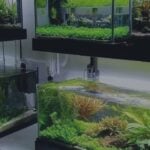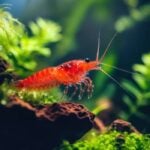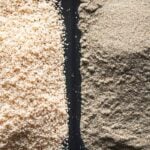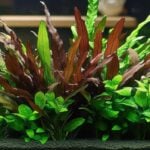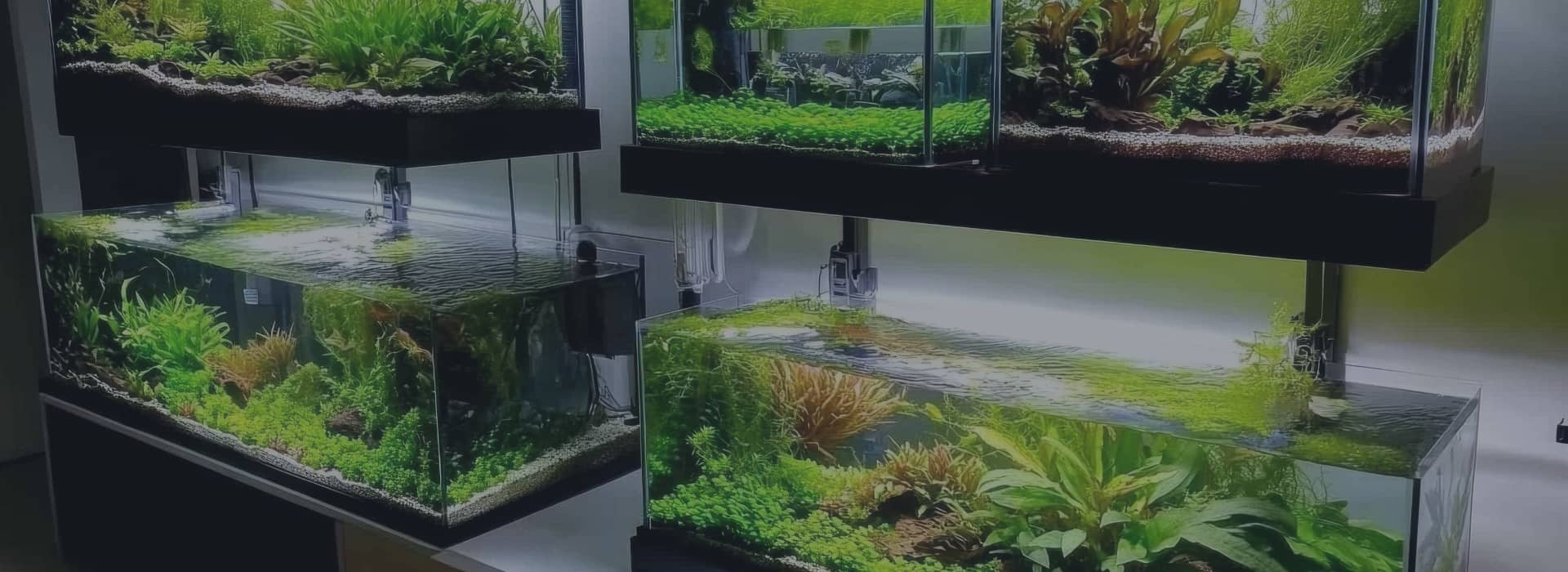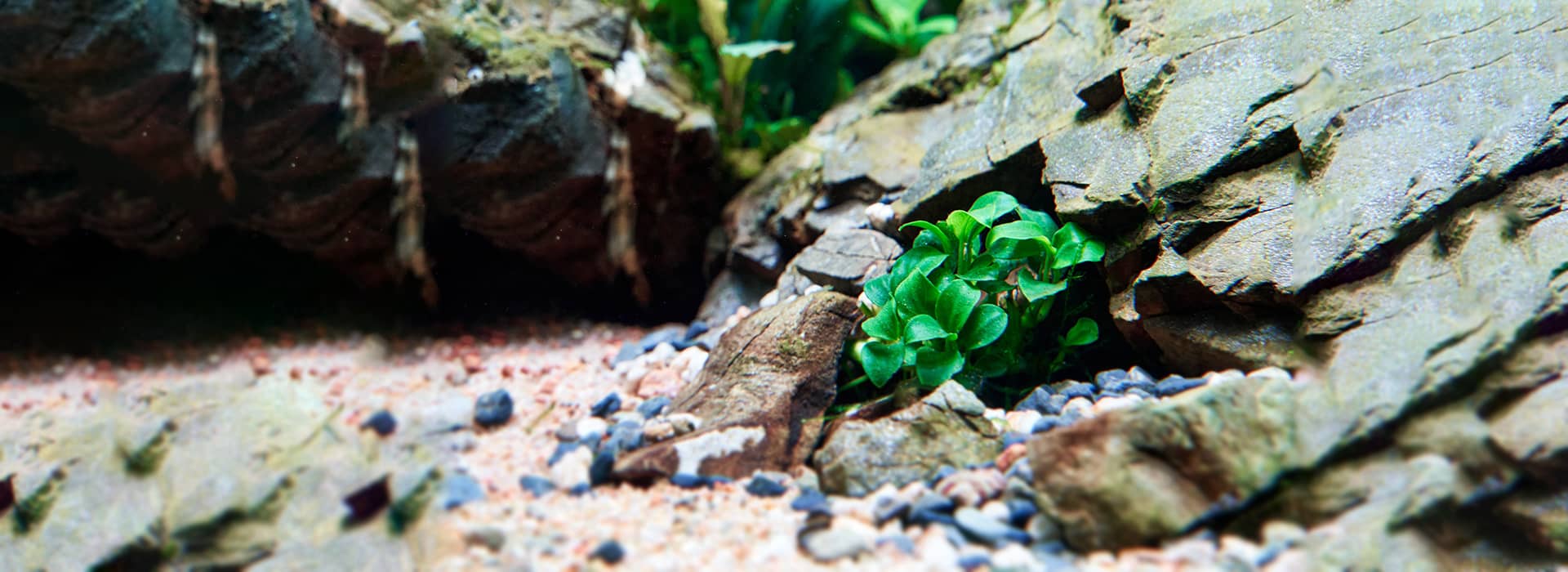Keeping a Betta is one of the most satisfying things you can do in the hobby. Feeding your Betta fish properly is essential for their health and well-being. These beautiful and vibrant fish have specific dietary needs that must be met to ensure their longevity and vitality. However, navigating the world of Betta fish nutrition can be confusing at times. That’s why understanding the do’s and don’ts of feeding your Betta fish is crucial.
Let’s explore the important guidelines and best practices for feeding your Betta fish. We will discuss the appropriate types of food, feeding schedules, portion sizes, and potential pitfalls to avoid. By following these recommendations, you can provide your Betta fish with a balanced and nutritious diet, promoting their overall health and enhancing their natural colours and finnage.
Understanding the Nutritional Needs of Betta Fish:
Betta fish have specific nutritional needs that can differ from other popular freshwater fish. Understanding these requirements is needed to provide them with the right diet. Here are some key points to consider regarding the nutritional needs of Betta fish:
- Natural Diet: In the wild, Betta fish are carnivorous and primarily feed on insects, larvae, small crustaceans, and zooplankton. In essence, their diet consists of high-protein foods.
- Essential Nutrients: While Betta fish require a diet rich in protein, they also need essential fatty acids, vitamins, and minerals to support overall health, immune function, and vibrant colours.
- Protein Sources: Choose Betta fish food that contains high-quality protein sources such as fish meal, shrimp meal, or insect larvae. Look for products specifically formulated for Betta fish to ensure the right balance of nutrients. Avoid cheap options that might include unhealthy fillers.
- Fats and Carbohydrates: While fats and carbohydrates are also part of a Betta fish’s diet, they should be provided in moderation. Fats serve as a source of energy, while carbohydrates contribute to a well-rounded diet. However, excessive amounts can lead to obesity and other health issues.
- Nutritional Variety: Provide a variety of food types to meet the nutritional needs of Betta fish. This includes high-quality Betta fish pellets, flakes, freeze-dried or frozen foods, and occasional live food treats such as brine shrimp or daphnia. A varied diet helps ensure a wide range of nutrients and prevents nutritional deficiencies while also stimulating the fish.
- Consideration for Age and Activity Level: The nutritional needs of Betta fish may vary depending on their age and activity level. Younger Betta fish and those with a high activity level may require more frequent feedings and a higher protein content in their diet. Older Betta fish, on the other hand, may benefit from a diet with reduced protein levels to prevent kidney strain.
By understanding these key points, you can make informed choices when selecting food for your Betta fish.
The Do’s of Feeding Your Betta Fish:
Here are some important “do’s” when it comes to feeding your Betta fish:
- Do provide a balanced diet: Betta fish require a varied and balanced diet to thrive. Feed them a combination of high-quality Betta-specific pellets or flakes as a staple food and supplement that with occasional live or frozen foods like brine shrimp, bloodworms, or daphnia. This helps ensure they receive a wide range of nutrients.
- Do feed in small portions: Betta fish have small stomachs and should be fed small amounts of food at a time. Overfeeding can lead to obesity and various health issues. Since these are opportunistic feeders by nature, they will try to eat all the food available to them. Feed them an amount they can consume within 2-3 minutes and remove any uneaten food from the tank to maintain good water quality.
- Do maintain a steady feeding schedule: Establish a consistent feeding schedule for your Betta fish. Feed them once or twice a day, providing a routine that they can anticipate. A regular feeding schedule helps maintain their metabolism and overall health.
- Do consider feeding live or frozen foods: Live or frozen foods, such as brine shrimp or bloodworms, are excellent sources of protein and can provide variety in your Betta’s diet. However, make sure the live or frozen foods are from a reputable source to avoid introducing diseases or parasites to your fish.
- Do observe portion control: as mentioned earlier, these fish can engorge themselves with too much food. Overfeeding can lead to constipation, bloating, and water quality issues. Remember that their stomachs are small, and they should be fed an amount they can consume in a minute. Adjust the portion size as needed, depending on your fish’s activity level and growth rate.
- Do offer occasional treats: Betta fish can enjoy occasional treats, such as freeze-dried or frozen foods like mosquito larvae or daphnia. Treats should be offered sparingly and in small quantities to maintain a balanced diet.
- Do soak pellets before feeding: Betta pellets can expand when they come into contact with water, leading to bloating in your fish. To prevent this, it’s a good practice to soak the pellets in aquarium water for a few minutes before feeding them to your Betta. This softens the pellets and reduces the risk of digestive issues.
Remember, each Betta fish is unique, so observe their behaviour and adjust their feeding regimen accordingly.
The Don’ts of Feeding Your Betta Fish:
When it comes to feeding your Betta fish, there are certain “don’ts” that you should keep in mind to ensure their well-being:
- Don’t overfeed: Overfeeding is one of the most common mistakes Betta fish owners make. Avoid giving your Betta fish more food than they can consume in under a minute. Overfeeding can lead to obesity, digestive problems, and poor water quality. Remember, a Betta’s stomach is small, and they have specific nutritional requirements.
- Don’t rely solely on live or frozen foods: While live or frozen foods can be a valuable addition to a Betta’s diet, they shouldn’t be the sole source of nutrition. These foods can be expensive, may introduce diseases or parasites, and may not provide a balanced diet. Supplement them with high-quality Betta-specific pellets or flakes that contain essential nutrients.
- Don’t feed them a diet of only dried foods: While dried foods like pellets or flakes are convenient and can serve as the staple diet for your Betta fish, they should not be the sole source of nutrition. Dried foods can lack certain nutrients and may not provide the same variety as live or frozen foods. It’s essential to diversify their diet to ensure they receive a well-rounded nutritional intake.
- Don’t feed them human food: Human food is generally unsuitable for Betta fish. Avoid feeding them items like bread, meat, fruit, or vegetables from your own meals. These foods can be challenging for them to digest and may contain additives or seasonings that are harmful to their health. Stick to specially formulated Betta fish foods for their dietary needs.
- Don’t feed then sinking pellets: Bettas are surface feeders and will have trouble eating properly if all the food sinks to the bottom as soon as it is added to the tank.
- Don’t feed them constantly: Betta fish need regular feeding schedules, but they also require periods of fasting. Avoid the temptation to feed them constantly throughout the day. Allowing them to have regular fasting periods of 1-2 days per week can help prevent digestive problems and maintain their overall health.
By being aware of these “don’ts” and following proper feeding practices, you can ensure that your Betta fish remains healthy, active, and happy.
Betta Feeding Techniques and Tips:
Feeding your Betta fish involves more than just providing food. Here are some feeding techniques and tips to enhance the feeding experience for your Betta:
- Use a feeding ring: Bettas are surface feeders. Using a feeding ring or a small floating object, such as a clean bottle cap or a suction cup with a hole, can help contain the food in a specific area of the tank. This prevents the food from spreading across the water’s surface and makes it easier for your Betta to find and consume the food.
- Feed small meals: Rather than feeding your Betta fish one large meal, consider dividing their daily food portion into two or three smaller meals. This approach mimics their natural feeding behaviour and helps prevent overeating.
- Engage in interactive feeding: Betta fish are intelligent and can benefit from interactive feeding techniques. One option is to use a feeding wand or a clean, small-sized turkey baster to move the food around in the water. This mimics the movement of live prey, stimulating your Betta’s natural hunting instincts and encouraging them to eat.
- Pre-soak freeze-dried foods: If you’re feeding freeze-dried foods, such as bloodworms or brine shrimp, it’s a good practice to soak them in a small container of aquarium water before feeding. This rehydrates the food and makes it easier for your Betta to consume. Soaking for a few minutes helps prevent digestive issues caused by the expansion of the food in their stomach.
- Observe feeding behaviour: Pay attention to your Betta fish’s behaviour during feeding. Healthy Bettas are generally active and enthusiastic eaters. If you notice a loss of appetite, lack of interest in food, or any other unusual behaviour, it could be a sign of underlying health issues. Consult a veterinarian if you have concerns about your Betta’s feeding behaviour.
- Rotate food varieties: Offering a variety of foods is beneficial for your Betta’s health and enjoyment. Rotate between high-quality Betta-specific pellets, flakes, and occasional live or frozen foods. This helps ensure a balanced diet and prevents boredom or nutritional deficiencies.
- Be mindful of water temperature: Betta fish are sensitive to water temperature. Before feeding, ensure that the water in the tank is at an appropriate temperature range for your Betta (around 24-28°C or 76-82°F). Extreme temperatures can affect their digestion and overall well-being.
- Maintain water quality: Proper feeding practices are closely linked to maintaining good water quality. Uneaten food can quickly degrade water conditions, leading to poor water quality and potential health problems for your Betta. Regularly monitor and maintain the water parameters of the tank, and promptly remove any excess or uneaten food after feeding.
It may take some experimentation to find the feeding techniques and routines that work best for your specific fish. By implementing these techniques and staying attentive to your Betta’s needs, you can provide them with a healthy and enjoyable feeding experience.
Common Feeding Mistakes to Avoid:
Feeding your Betta fish properly is fundamental to their health and well-being. Here are some common Betta feeding mistakes to avoid:
- Overfeeding: As explained multiple times, overfeeding Bettas should be avoided at all costs.
- Inconsistent feeding schedule: Betta fish thrive on a regular feeding schedule. Inconsistency can disrupt their metabolism and lead to digestive issues. Establish a consistent feeding routine and stick to it. This includes fasting days. Be consistent with how often you don’t feed the Betta. One or two particular days a week is good enough.
- Feeding low-quality or inappropriate foods: Betta fish require a high-quality and balanced diet. Avoid feeding them low-quality foods that lack essential nutrients. Additionally, human food, such as bread, meat, or fruits, is unsuitable for Bettas and can harm their health. Stick to specially formulated Betta-specific pellets, flakes, and occasional live or frozen foods.
- Neglecting variety in the diet: Providing a varied diet is important for Betta fish. Feeding them the same food all the time can lead to nutritional deficiencies. Incorporate a mix of high-quality pellets, flakes, and occasional live or frozen foods to ensure they receive a range of nutrients.
- Not removing uneaten food: Leaving uneaten food in the tank can quickly degrade water quality and harm your Betta’s health. Remove any uneaten food after feeding using a net or siphon. This helps prevent ammonia spikes, nitrate build-up, and other water chemistry imbalances.
- Not adjusting feeding amounts for activity level: The amount of food your Betta fish needs can vary depending on their activity level and metabolism. If your Betta is more active or has a faster metabolism, it may require slightly larger portions. Adjust the feeding amounts accordingly to maintain optimal health.
By avoiding these common feeding mistakes, you can provide your Betta fish with a nutritious diet and maintain their health.
What to do if your Betta is not eating properly?
If your Betta fish is not eating properly, it could be a sign of underlying health issues or stress. Here are some steps you can take to address the situation:
- Assess the tank conditions: Ensure that the water parameters in your Betta’s tank are within the appropriate range. Test the water for ammonia, nitrites, nitrates, pH, and temperature. Poor water quality can stress Bettas and affect their appetite. Perform a partial water change if necessary to improve water conditions.
- Check for signs of illness: Observe your Betta for any other signs of illness, such as lethargy, loss of colour, fin clamping, or abnormal behaviour. These could indicate health problems that affect their appetite. If you notice any concerning symptoms, consult a veterinarian experienced in fish care for a proper diagnosis and treatment.
- Evaluate the diet: Review the type of food you are offering to your Betta fish. Ensure that you are providing a high-quality Betta-specific pellet or flake food that meets their nutritional needs. Consider adding variety to their diet with occasional live or frozen foods like brine shrimp or bloodworms. Some Bettas may have preferences for certain types of food, so you could try different options to entice them.
- Experiment with feeding techniques: Some Bettas may respond better to certain feeding techniques. For example, you can try using a feeding ring or a feeding wand to simulate movement and attract their attention. Moving the food around gently can help stimulate their natural hunting instincts. Interactive feeding can sometimes encourage Bettas to eat.
- Create a stress-free environment: Ensure that your Betta’s tank setup provides a comfortable and stress-free environment. Bettas can be sensitive to their surroundings. Provide appropriate hiding places, maintain suitable water parameters, and minimise disturbances around the tank. A calm and peaceful environment can encourage Bettas to eat more readily.
- Consider fasting: If your Betta is otherwise healthy, you may want to try a short fasting period. Bettas can go for a few days without food without significant harm. This can help reset their appetite and encourage them to eat once feeding resumes. However, if your Betta’s condition worsens or they show signs of weakness, fasting should be discontinued immediately, and a veterinarian should be consulted.
- Seek veterinary advice: If your Betta’s appetite does not improve or if you notice other concerning symptoms, it is advisable to seek professional veterinary advice. A veterinarian with expertise in fish care can conduct a thorough examination and provide appropriate diagnosis and treatment options.
Remember, every Betta fish is unique, and it may take some time and experimentation to address appetite issues. Be patient, monitor their behaviour closely, and provide appropriate care to support their overall health and well-being.
FAQ
Do I need to feed my Betta fish every day?
Betta fish should be fed every day except for one or two days a week. Establish a regular feeding schedule to provide them with proper nutrition. However, remember to feed them in moderation and avoid overfeeding.
Can I feed my Betta fish human food?
No, it is not recommended to feed your Betta fish human food. Human food may contain additives, seasonings, or ingredients that are harmful to Bettas. Stick to specially formulated Betta fish foods to meet their dietary needs.
Should I feed my Betta fish live or frozen foods?
Live or frozen foods can be beneficial and provide variety in their diet. However, they should not be the sole source of nutrition. Supplement them with high-quality Betta-specific pellets or flakes that provide balanced nutrition.
Can I give treats to my Betta fish?
Yes, you can give treats to your Betta fish occasionally. Treats can be live or frozen foods like bloodworms or brine shrimp. However, offer treats in small quantities and as supplements to their regular diet.
Should I fast my Betta fish?
Yes, fasting your Betta fish for 1-2 days a week can be beneficial. It helps prevent digestive problems and allows their digestive system to rest. However, fasting should not be continued if your Betta fish shows signs of weakness or deteriorating health.
Can I feed my Betta fish exclusively with dried foods?
While dried foods like pellets or flakes can serve as the staple diet, it is not recommended to feed your Betta fish just dried foods. They should be supplemented with occasional live or frozen foods to provide a more varied and balanced diet.
Conclusion
Understanding the do’s and don’ts of feeding your Betta fish is essential for their overall health and well-being. Following the do’s, such as providing a balanced diet, feeding in moderation, and maintaining water quality, can promote optimal nutrition and a thriving environment for your Betta. On the other hand, avoiding the don’ts, such as overfeeding, feeding inappropriate foods, or neglecting water quality, helps prevent potential health issues and ensures a happy Betta. Remember to observe your Betta’s behaviour, adjust feeding techniques if necessary, and seek professional advice when needed. By implementing these guidelines, you can provide your Betta with a nutritious diet, maintain a clean and healthy tank, and foster a strong bond with your vibrant and beautiful fish companion.
